286 scholarly books by Haus Publishing and 11
start with E
286 scholarly books by Haus Publishing and 11
286 scholarly books by Haus Publishing
11 start with E start with E
11 start with E start with E
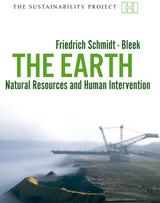
The Earth
Natural Resources and Human Intervention
Friedrich Schmidt-Bleek
Haus Publishing, 2009
Population growth mainly occurs in fast-developing, and developing nations. Can earth sustain this growth? How will the power shift? This book offers prospects on causes and effects of population growth and the age-ing population in industrialised countries.
[more]
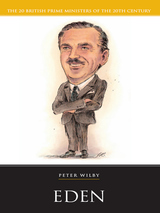
Eden
Peter Wilby
Haus Publishing, 2006
Succeeded Churchill as Prime Minister, but worsened relations with USA during the Suez Crisis
[more]

Einstein
Peter Smith
Haus Publishing, 2005
Albert Einstein re-wrote the textbooks of science in 1905: physics since has been little more than a series of footnotes to the theories of a 26-year-old patent-office clerk. Einstein's science and emotional life come together in this vivid portrait of a rebellious and contradictory figure, a pacifist whose legendary equation E=mc2 opened scientists' eyes to the terrible power within every atom.
[more]
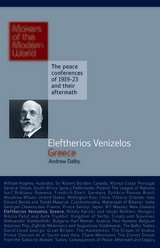
Eleftherios Venizelos
Greece
Andrew Dalby
Haus Publishing, 2010
The Greek Prime Minister Eleftherios Venizelos (1864–1936) was one of the stars of the Paris Peace Conference, impressing many of the Western delegates, already possessed of a romantic view of 'the grandeur that was Greece', with his charm and oratorical style. He won support for his country's territorial ambitions in Asia Minor, the 'Great Idea' of a revived Hellenic empire controlling the Aegean and stretching to the Black Sea. Venizelos had won this support by bringing Greece into the war on the Allied side, but in doing so he had split his country, and in order to secure his government's position he had to deliver territorial gains at the expense of the Ottoman Empire. It was the Greek occupation of Asia Minor, however, that spurred the Turks to support Mustafa Kemal and resulted not in the creation of a Greater Greece but the modern Republic of Turkey. The conflict between Greece and Turkey began the tension between the two states that has continued for the past 90 years and is most clearly seen in the dispute over the divided island of Cyprus. The Paris Peace Conferences were where the modern Near East, with all its problems of competing nationalisms and ethnic divisions, was created, and Venizelos's Greece was the key player in this process.
[more]

Elsewhere
Doron Rabinovici
Haus Publishing, 2010
Israeli academic Ethan Rosen is a brilliant, opinionated thinker—as is his colleague and rival, Rudi Klausinger, against whom he is pitted in a no-holds-barred competition for the sought-after professorship of cultural studies. So when Rosen condemns an article that he himself wrote, those around them wonder: Is he so confused that he can’t even recognize his own words?
A complex and moving novel about modern Jewish identity, Elsewhere takes aim at a number of sensitive issues, including nationalism, Zionism, collective guilt, the Holocaust, and Israel itself. As heartfelt and surprising as it is hilarious, it pokes fun at the things we care about in order to get at what really matters.
A complex and moving novel about modern Jewish identity, Elsewhere takes aim at a number of sensitive issues, including nationalism, Zionism, collective guilt, the Holocaust, and Israel itself. As heartfelt and surprising as it is hilarious, it pokes fun at the things we care about in order to get at what really matters.
[more]

The Ends of the Earth
Roger Willemsen
Haus Publishing, 2010
An author, foreign correspondent, academic, and television personality, Roger Willemsen is a familiar figure in Germany, and The Ends of the Earth offers English-language readers a chance to engage with his uniquely astute take on the world. Consisting of twenty-two essays recounting and reflecting on a lifetime of travel to the far and forgotten corners of our planet, the book offers remarkable encounters and mysterious entanglements in locations as diverse as a Kamchatkan volcano, a Burmese railway station, an Arctic icebreaker, and a Minsk hospital ward. Willemsen is the perfect companion, reveling in the strange and unlovely, and tracing unexpected connections among places, times, and peoples.
[more]
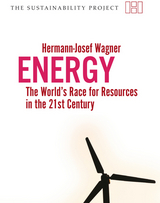
Energy
The Worlds Race for Resources in the 21st Century
Hermann-Josef Wagner
Haus Publishing, 2009
The future of our energy supplies is an explosive topic. Unprecedented global population growth means that energy consumption will certainly continue to increase dramatically, and the worldwide political structures will be reordered. Finding alternative energy sources to avoid a climate catastrophe is a major priority for the 21st century.
[more]

Epitacio Pessoa
Brazil
Michael Streeter
Haus Publishing, 2010
Brazil was one of the emerging world powers to be invited to the Paris Peace Conference in 1919. Having jettisoned her empire just thirty years before, the Portuguese-speaking nation was showed signs of becoming one of the financial powerhouses not just of Latin America, but of the world. Helped by abundant natural resources, cheap labour and large-scale immigration, Brazil’s economy had grown massively – and now it wanted to take its proper place in the society of world nations. In Paris, the country’s delegation was led by Epitacio Pessoa, a brilliant lawyer who had made his mark in national politics and was also a committed Europhile. It was a shrewd choice; helped by the Americans, Pessoa negotiated a deal to rescue Brazilian coffee from the German ports where it had languished since the middle of the war. He also helped win a place at the top table for Brazil in the new League of Nations. Pessoa was then rewarded by being elected president of Brazil – even though he was in Paris at the time. Yet even as Brazil enjoyed its moment of triumph on the international stage, the country’s political system was starting to unravel. Pessoa’s presidency ended in failure in 1922, its modest achievements overshadowed by bitter army revolts. And as Pessoa embarked on a new career as an international judge, his country slipped further into political infighting between elite oligarchies until the ageing republic finally folded in 1930. This, then, is the story of Epitacio Pessoa, the Treaty of Versailles and the rise and fall of Brazil’s tumultuous First Republic.
[more]
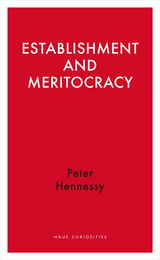
Establishment and Meritocracy
Peter Hennessy
Haus Publishing, 2014
Like so many of the postwar generation in Britain, Peter Hennessy climbed the ladders of opportunity set up by the 1944 Education Act designed to encourage a more meritocratic society. In this highly personal book, Hennessy examines the rise of meritocracy as a concept and the persistence of the shadowy notion of an establishment in Britain’s institutions of state. He asks whether these elusive concepts still have any power to explain British society, and why they continue to fascinate us. To what extent are the ideas of meritocracy and the establishment simply imagined? And if a meritocracy rose in the years following 1945, has it now stalled?
With its penetrating examination of the British school system and postwar trends, Establishment and Meritocracy is an important resource for those concerned about the link between education and later success, both for individuals and their societies.
With its penetrating examination of the British school system and postwar trends, Establishment and Meritocracy is an important resource for those concerned about the link between education and later success, both for individuals and their societies.
[more]
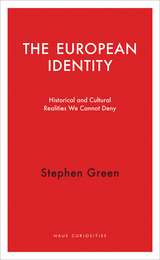
The European Identity
Historical and Cultural Realities We Cannot Deny
Stephen Green
Haus Publishing, 2015
What—if anything—do the twenty-eight member states of the European Union have in common? Amidst all the variety, can one even speak of a European identity? In this timely book, Stephen Green explores these questions and argues for the necessity of the European voice in the international community.
Green points out that Europeans can readily define the differences that separate them from others around the globe, but they have yet to clearly define their own similarities across member states. He argues that Europe has something distinctive and vitally important to offer: the experience of a unique journey through centuries of exploration and conflict, errors and lessons, soul-searching and rebuilding—an evolution of universal significance.
Coming at a time when the divisions in European culture have been laid bare by recent financial crises and calls for independence, The European Identity identifies one of the biggest challenges for all of the member states of the European Union.
Green points out that Europeans can readily define the differences that separate them from others around the globe, but they have yet to clearly define their own similarities across member states. He argues that Europe has something distinctive and vitally important to offer: the experience of a unique journey through centuries of exploration and conflict, errors and lessons, soul-searching and rebuilding—an evolution of universal significance.
Coming at a time when the divisions in European culture have been laid bare by recent financial crises and calls for independence, The European Identity identifies one of the biggest challenges for all of the member states of the European Union.
[more]

An Extraordinary Scandal
The Westminster Expenses Crisis and Why It Still Matters
Emma Crewe and Andrew Walker
Haus Publishing, 2019
A parliamentary scandal that dominates the headlines. The resignation of major party figures. Commentators and citizens wondering if the British government—and the people’s faith in it—will survive. Before Brexit, another major crisis rocked the foundation of government in the country: the expenses scandal of 2009.
Featuring interviews with the members of parliament, journalists, and officials close to the center of the turmoil, An Extraordinary Scandal tells the story of what really happened. Andrew Walker, the tax expert who oversaw the parliamentary expenses system, and Emma Crewe, a social scientist specializing in the institutions of parliament, bring fascinating perspectives—from both inside and outside parliament—to this account. Far from attempting provide a defense of any the parties involved, An Extraordinary Scandal explains how the parliament fell out of step with the electorate and became a victim of its own remote institutional logic, growing to become at odds with an increasingly open, meritocratic society.
Charting the crisis from its 1990s origins—when Westminster began, too slowly, to respond to wider societal changes—to its aftermath in 2010, the authors examine how the scandal aggravated the developing crisis of trust between the British electorate and Westminster politicians that continues to this day. Their in-depth research reveals new insight into how the expenses scandal acted as a glimpse of what was to come, and they reveal where the scandal’s legacy can be traced in the new age of mistrust and outrage, in which politicians are often unfairly vulnerable to being charged in the court of public opinion by those they represent.
Featuring interviews with the members of parliament, journalists, and officials close to the center of the turmoil, An Extraordinary Scandal tells the story of what really happened. Andrew Walker, the tax expert who oversaw the parliamentary expenses system, and Emma Crewe, a social scientist specializing in the institutions of parliament, bring fascinating perspectives—from both inside and outside parliament—to this account. Far from attempting provide a defense of any the parties involved, An Extraordinary Scandal explains how the parliament fell out of step with the electorate and became a victim of its own remote institutional logic, growing to become at odds with an increasingly open, meritocratic society.
Charting the crisis from its 1990s origins—when Westminster began, too slowly, to respond to wider societal changes—to its aftermath in 2010, the authors examine how the scandal aggravated the developing crisis of trust between the British electorate and Westminster politicians that continues to this day. Their in-depth research reveals new insight into how the expenses scandal acted as a glimpse of what was to come, and they reveal where the scandal’s legacy can be traced in the new age of mistrust and outrage, in which politicians are often unfairly vulnerable to being charged in the court of public opinion by those they represent.
[more]
READERS
Browse our collection.
PUBLISHERS
See BiblioVault's publisher services.
STUDENT SERVICES
Files for college accessibility offices.
UChicago Accessibility Resources
home | accessibility | search | about | contact us
BiblioVault ® 2001 - 2024
The University of Chicago Press









